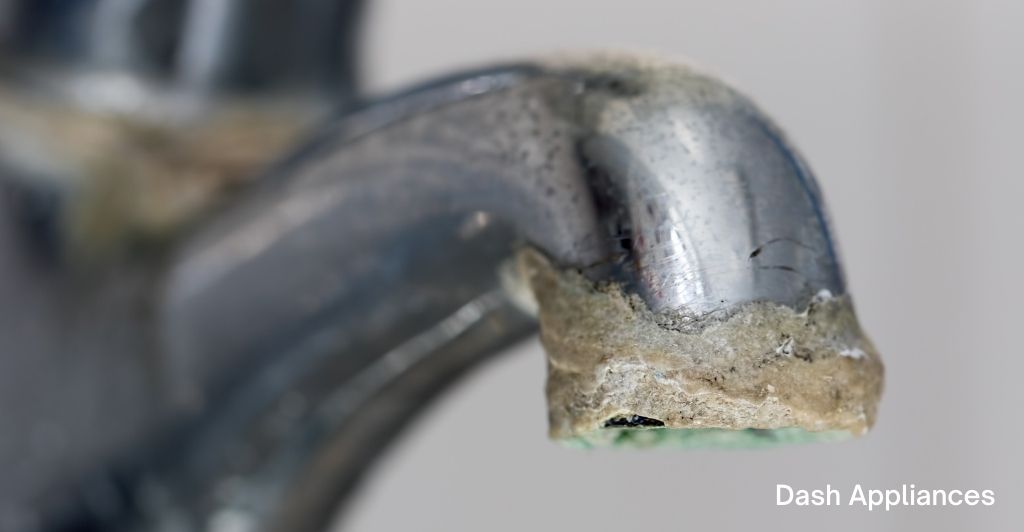We often hear people use terms such as hard water and soft water, but do you know what the terms actually mean? Water containing chlorides, sulfates, magnesium, calcium, and other salts is known as hard water.
In this article, we’ll tell you all about hard water, and further, we’ll also talk about the effects of drinking hard water. Let’s delve right into the article.
What is Hard Water?
The water that includes salts of magnesium, as well as calcium primarily in the form of chlorides, sulfates, and bicarbonate, is referred to as hard water. It may also contain ferrous iron.
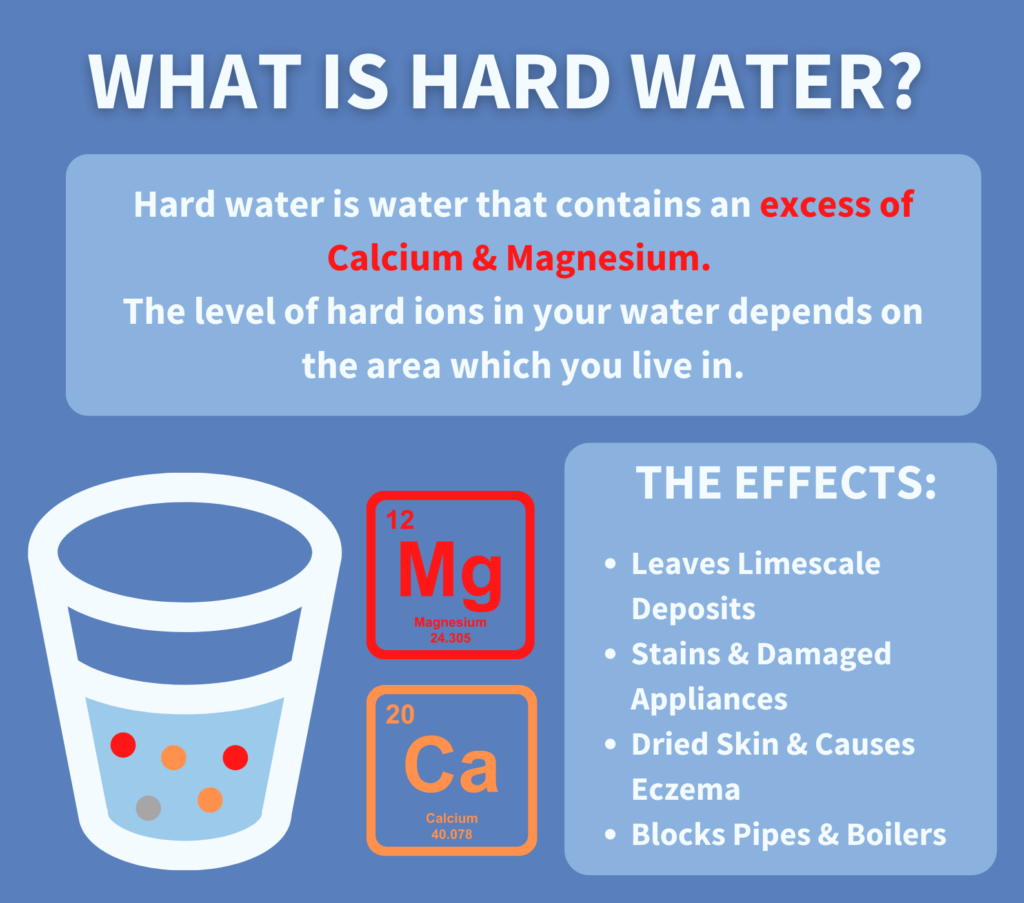
The hardness of water induced by Ca(HCO3)2 or calcium bicarbonate comes to be called temporary as booking results in the formation of insoluble carbonate from the bicarbonate. Water hardness caused by any other salt is considered to be permanent.
Difference Between Hard Water and Soft Water
Hard water comprises some highly beneficial minerals such as calcium and magnesium that add flavor to this water type. Increased levels of such minerals result in the hardness of this water.
On the other hand, soft water is the type of water that has been formerly treated wherein the concentrations of the existing minerals are lowered. The flavor of soft water is mostly salty as it only includes sodium ions.
Below, we have provided you with a quick comparison table that will help you make a clear difference between the two types of water. Let’s have a look:
| Hard water | Soft water |
| It contains Plenty of minerals | Includes only a few elements |
| Soap isn’t much effective | Soap is very easily effective |
| Soaps don’t create any foam or lather | Soaps create bubbly lather |
| Stains can be seen on the vessels after they have been washed and dried | No stains on vessels after getting dried |
| Includes calcium and magnesium | Includes sodium ion |
| Preferred for drinking purposes sometimes | Not preferred for drinking purposes, sometimes |
| Dries skin and hair | It makes skin and hair relatively softer |
| E.g., Groundwater such as deep wells | E.g., Rainwater |
How can you Tell if Water is Hard or Soft?
Well, it is nearly impossible to assess the hardness or softness of the water by merely looking at it. Usually, you might be able to differentiate by sensing the water or how it cleans your dishes or clothes.
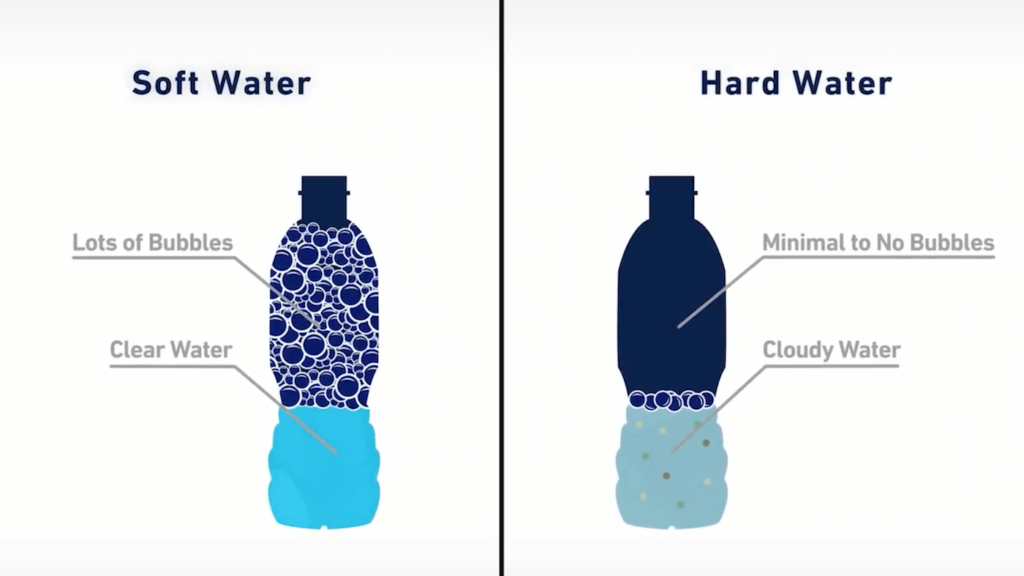
For a clear understanding, the following are the indications of hard water:
- Sensing a sort of coating on the hands after you wash them with hard water. A film gets created because the soap reacts with the calcium present in hard water and results in the formation of soap scum. You will probably have to wash your hands for a longer duration in case of hard water.
- Stains: A few spots may appear on silverware or glasses after you take them out from the dishwasher. Generally, these are calcium carbonate residues.
- Mineral blots. These normally appear on clothing after coming out of a washing machine that contains hard water. Clothes are likely to wear out much sooner due to the severity of concentrations of minerals present in hard water.
- Reduced water flow or pressure. Deposits of minerals present in hard water may get created in your house pipeline, which essentially results in shrinkage of the inner diameter of your ducts and hence, reduces the water flow.
Now, let’s have a look at the indications of soft water:
- A bubbly lather will be formed after you wash your clothes, utensils, as well as your body or hands with soft water.
- Cleaner clothing, with no spots of minerals as well as a much lesser amount of wear-and-tear.
- A healthy and strong flow of water in the house.
- A slight taste of sodium or salt in the water when you drink it. However, in most cases, the difference in flavor is nearly indiscernible.
You can also watch this video to see how you can test for hard water in your home…
The Effects of Drinking Hard Water
The majority of studies indicate that drinking hard water generally leaves plenty of positive impacts on human health.
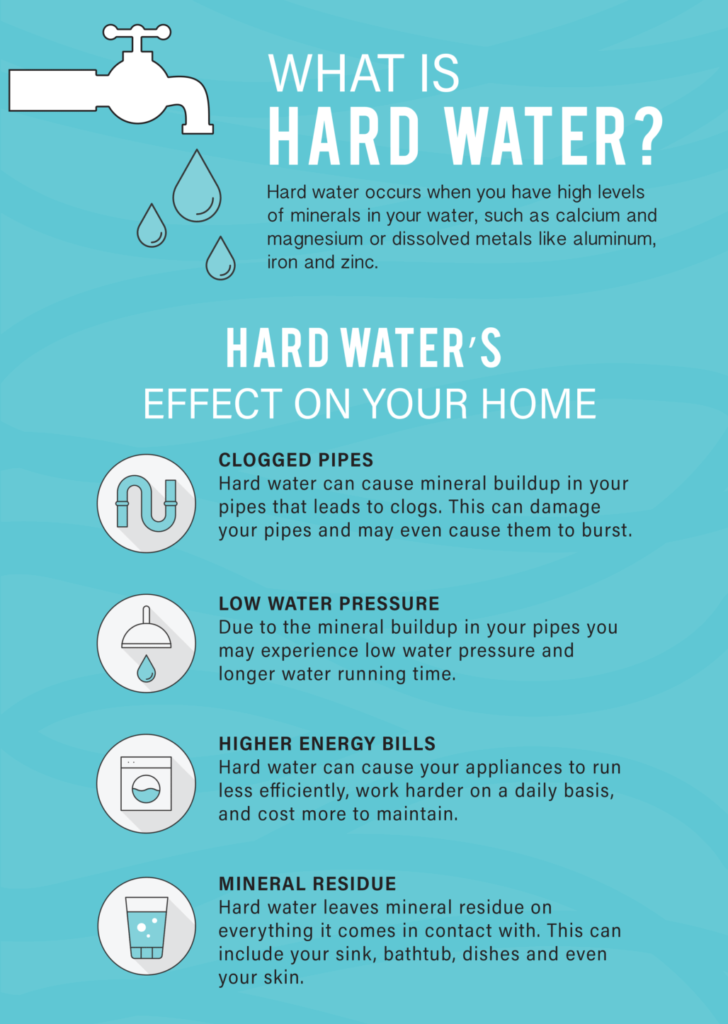
- A lot of studies have revealed that magnesium and calcium content in your drinking water is going to lead to a sort of dose-dependent guarding impact in the case of cardiovascular disease.
- Magnesium & calcium in hard water is also proven to help the human body fight against colon, gastric, rectal cancer, and pancreatic cancer. Magnesium can also help you in keeping safe from esophageal as well as ovarian cancer.
- Hard water also plays a guarding function and prevents atherosclerosis in kids as well as teenagers.
- Furthermore, a few studies have also exhibited a correlation between the formation of stones in the kidney and the hardness of the drinking water. However, most of the researchers didn’t find any evidence of the same.
- If you drink a couple of liters of hard water in a day, you will consume magnesium in the amount of almost 52mg. The daily intake that is recommended by science is 420 mg of magnesium a day, and this way, you will be able to consume nearly 12% of the same just through your water.
- People who have diabetes type-2 usually encounter the health problem called hypomagnesemia which is the lack of magnesium because insulin regulation needs magnesium to work. Thus, extra consumption of magnesium in the drinking water can be truly beneficial for such individuals.
- An increased concentration of magnesium in drinking water is also beneficial for individuals who experience the issue of chronic constipation because salts of magnesium work as laxatives.
- Cooking vegetables using hard water results in greater calcium content in the food as compared to soft water.
According to various studies, there aren’t many serious negative health issues related to drinking hard water.
However, there are a few things that you must know:
- Drinking hard water is likely to result in dry skin as well as hair. Your scalp may feel a bit itchy if you wash your hair every so often using hard water. Your body may feel highly itchy as well.
- Secondly, your skin’s pH balance is likely to get affected by drinking hard water due to the presence of certain minerals and result in the weakening of your skin.
- Individuals who suffer from eczema are also likely to be particularly vulnerable.
If you experience any issues with dry skin or hair from drinking hard water, then it may be a good idea to choose a decent water-softener machine for yourself and your family members. If you can’t get access to one, you may try consulting a dermatologist who will probably suggest you use certain products to lower the impact of hard drinking water on your hair and skin.
Is Hard Water Safe To Drink?
It is mostly safe to use hard water for drinking purposes. The scientifically proven fact is that hard water is most beneficial for the human body and protects it from various diseases.
With the rise in concentrations of calcium, magnesium, and some other minerals, the human body mostly reacts positively to hard water. Risks of various health issues, including cardiovascular diseases as well as some types of cancers, are lowered to a great extent.
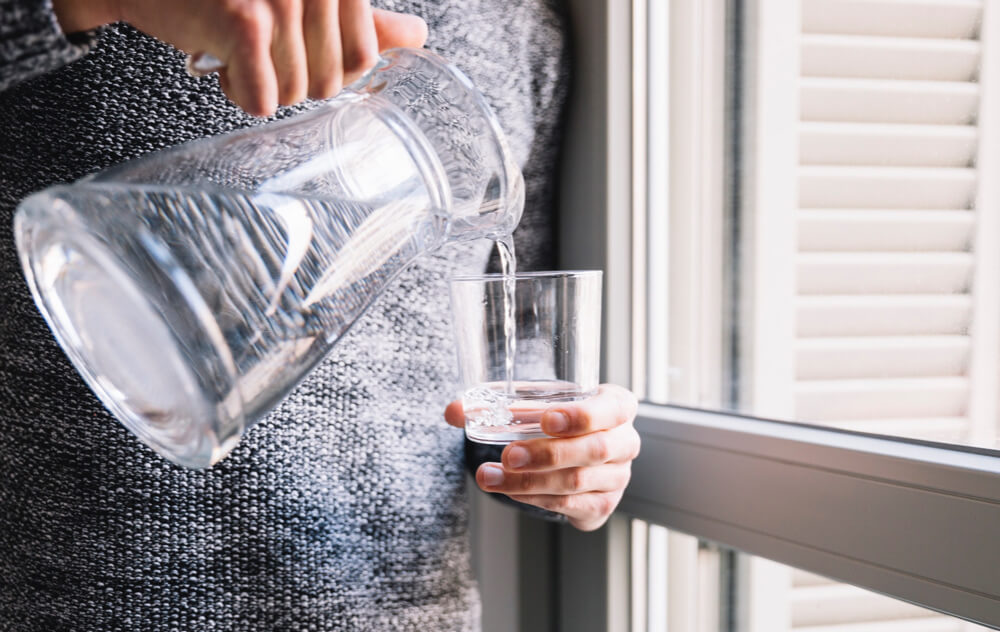
Regardless of all the benefits that hard water offers, it may be best to switch to drinking soft water for most people. Soft water offers greater benefits to human health compared to hard water and results in fewer overall adverse effects.
Hard water may lead to a failure of the reproductive system and even infertility in men. Excess calcium may sometimes do more bad than good to the human body. Therefore, it becomes important to consider the different degrees of minerals present in the water when evaluating the safety of hard water.
Overall, there isn’t certainly an adequate water hardness as consuming hard water is not truly regarded as a health issue. Nonetheless, it may be harmful in different ways.
Final Thoughts
Hard water is generally safe for drinking purposes for most people. The increased content of magnesium, calcium, as well as other beneficial minerals largely results in a positive impact on the human body.
However, most studies have always indicated both positive and negative impacts of hard water almost equally. Therefore, it is solely your choice to make what you want for your family’s body and health.
FAQ
What are the negative effects of hard water?
There are a few adverse consequences of hard water that include dry hair and skin, the buildup of scale on appliances, faded clothing, spots in basin and bathtubs, issues in plumbing, ugly dishware, and a likely increase of water bills.
What does hard water do to the human body?
The majority of individuals consume hard water with no adverse effects on their health, and on the contrary, the human body mostly benefits from the increase in concentrations of calcium and magnesium. Moreover, it can also help the human body fight against various health issues and diseases like diabetes, neural health issues, renal dysfunction, cardiovascular disease, reproductive failure, and others.
Is drinking hard water bad for your kidneys?
If an individual consumes hard water for a long time, it is most likely to result in kidney dysfunction. Many other health issues like diabetes and cerebrovascular diseases are also probable.
